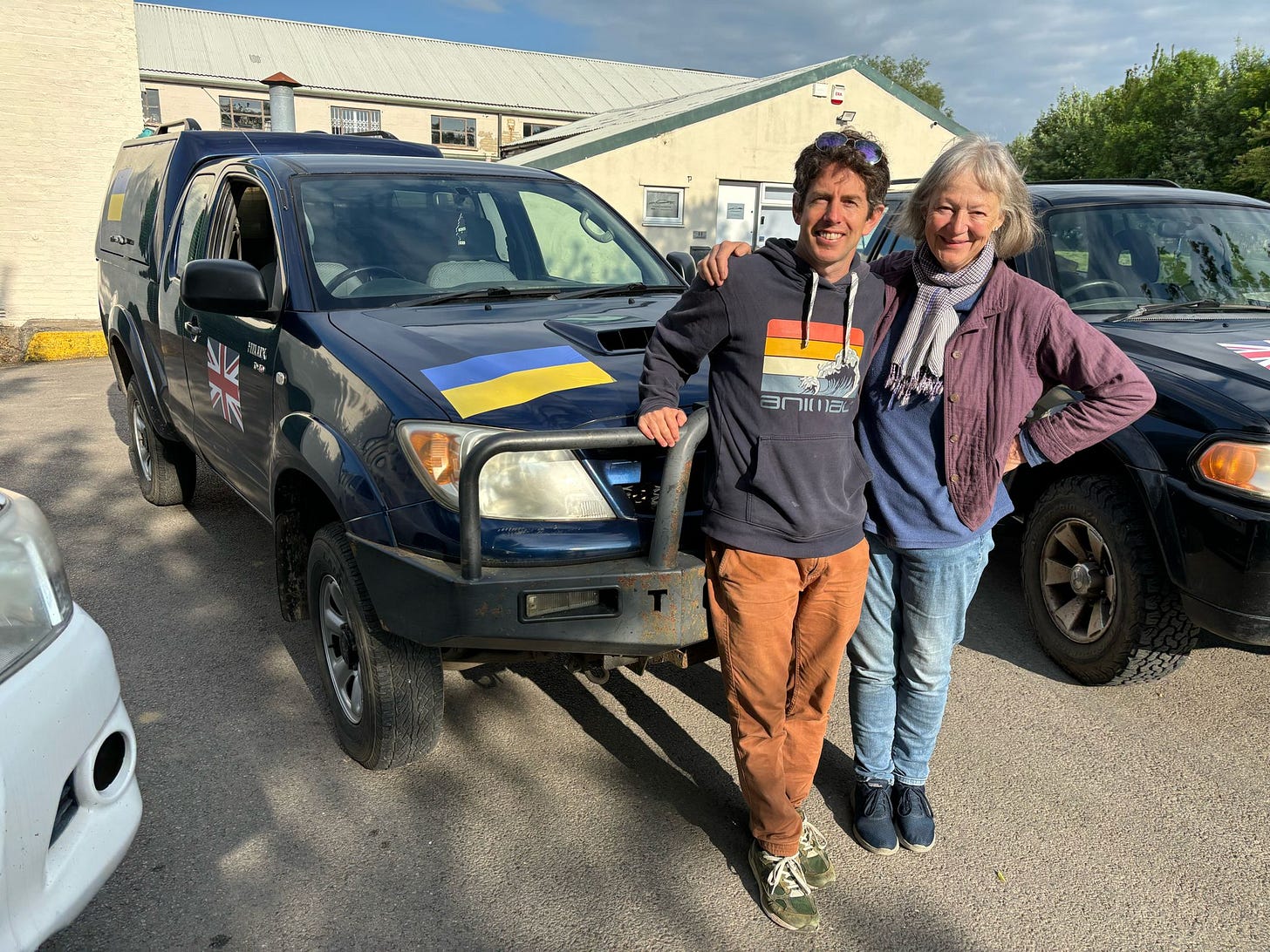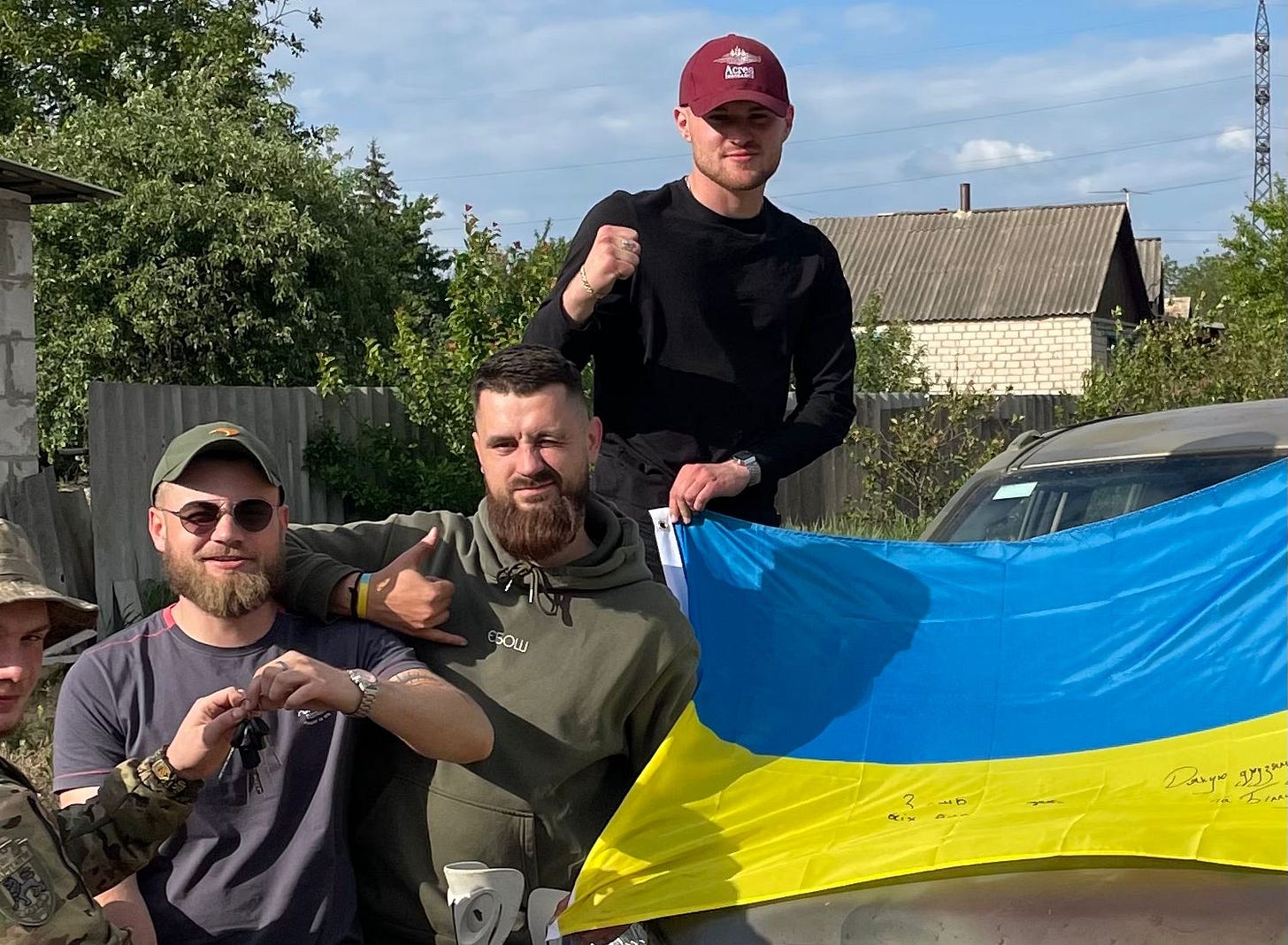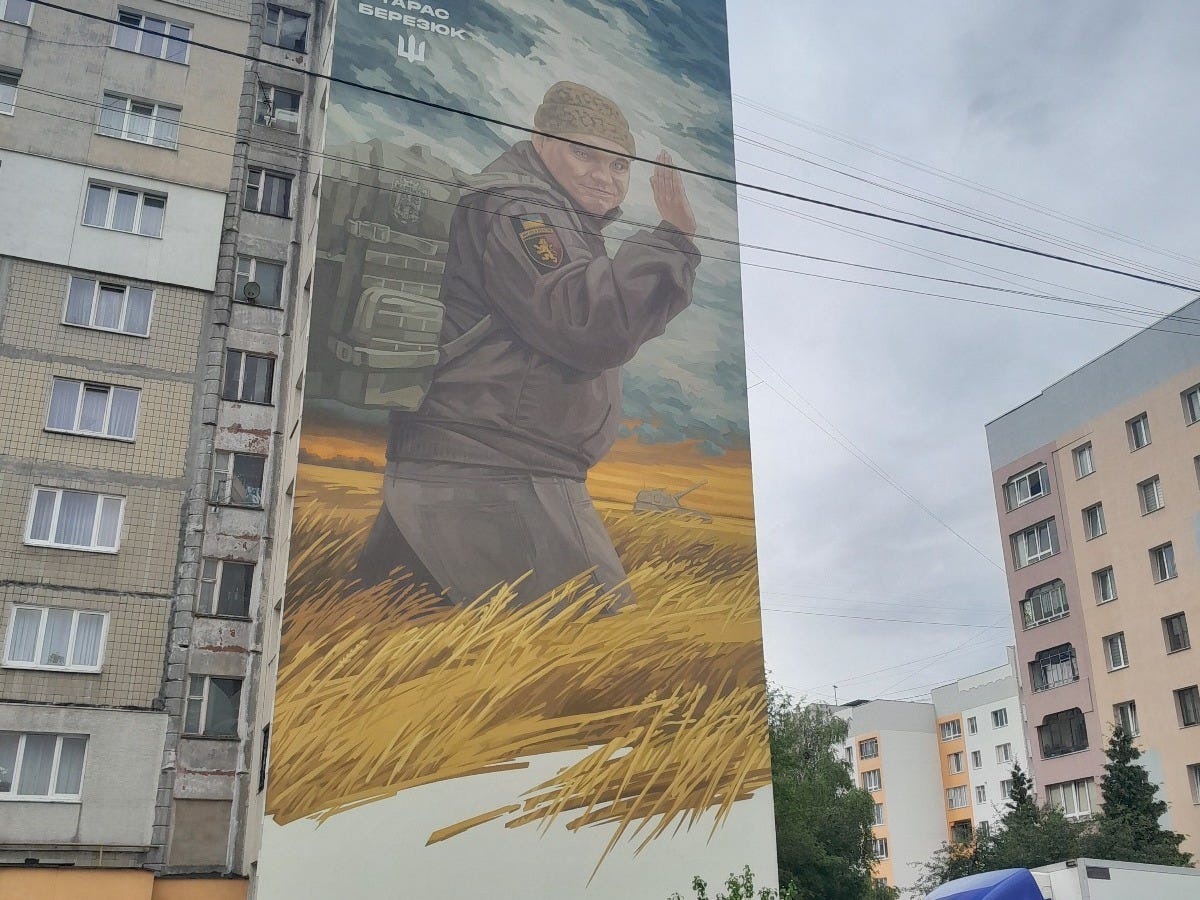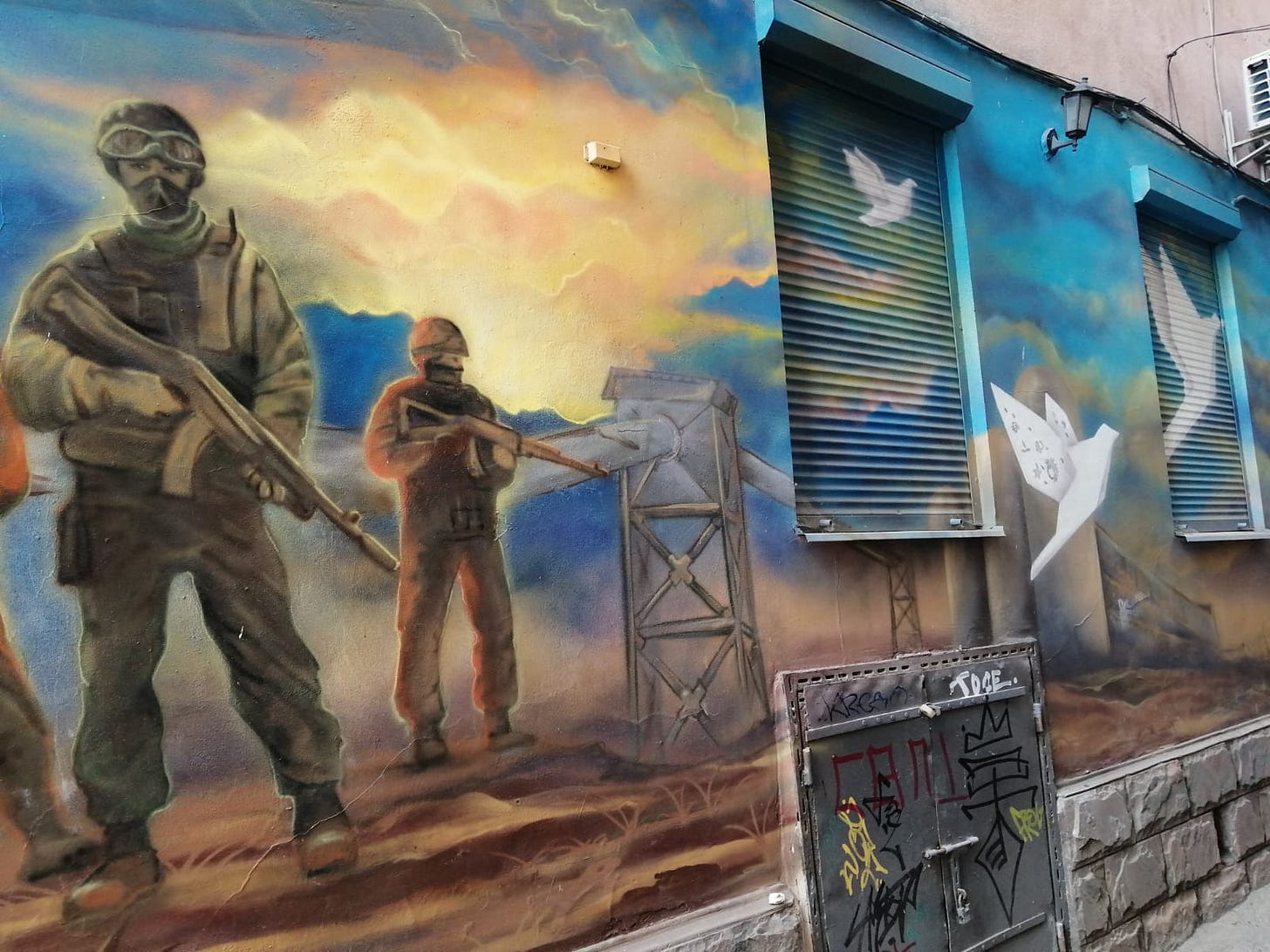Driving Trucks and Tourniquets to Ukraine
Byline subscriber Susan Richards appeals for help with delivering much-needed vehicles and vital medical supplies to the frontline in Ukraine
Help fellow Byline supporters and writers Susan Richards, Max Graef, Tom Burke, Melissa Remus-Elliot, Mark Benewith and friends buy, drive, and deliver evacuation vehicles to Ukraine 🇺🇦
At the end of April, I’m off to Ukraine with my son, friends, and a convoy of trucks. How many trucks, what they contain, how it will be used, all this matters hugely. But after Trump’s outrageous treatment of Ukraine and its President, the fact that we’re going is arguably more important:
“Right now, what’s keeping us going is the support of ordinary people,” Maksym wrote to us the other day.
That’s why, as a subscriber to Byline Times I was thrilled at the suggestion that readers might help to buy a truck for Ukraine.
It’s Maksym who will meet our convoy in the historic city of Lviv, in western Ukraine.
Driving Ukraine, the little venture which finds second-hand vehicles and does them up, was started by a young man called Fynn in Oxfordshire who did the kind of thing the young do, for which we love them: he borrowed his father’s truck, took it to the front line, full of aid – and left it there. Luckily, his father forgave him. Since then, Fynn and Jake, plus the hundreds of us who have raised money and driven these trucks, have dispatched 177 trucks to Maksym in Lviv.
These trucks are crucial for bringing the wounded back to field hospitals – our right-hand drives being especially prized, as they confound enemy snipers. The more money we raise, the more trucks we take in our convoy, the more medical aid and tourniquets. The tourniquets are vital. You see them on the streets of Lviv, the one-legged, or one-armed men who were not supplied with them. Those who can afford to buy their own get the cheapest, which are Chinese, and all too often fall apart.
That’s how Stas lost his leg. He’s part of the team that will deploy our trucks to the front. Before they go, the graffiti lads move in to spray-paint our trucks with camouflage.
Well, before the war, they were called graffiti lads. Now, ‘we are artists’ as one of them pointed out to me proudly.
After spraying our trucks they’ll go back to painting the walls of Lviv’s tower blocks with vast murals of local heroes, men known and loved in Lviv who have died at the front.
Sometimes, recently, feeling proud of being British has been a struggle. That changed when we were raising support for our first trip to Lviv in May last year. I became aware that all over Britain there were these groups – in pubs, churches and hospitals, groups of farmers, people in businesses, at racetracks, and among the urban young, who all felt connected to the existential battle under way on Europe’s eastern flank.
For me, the issue is personal. From 1988 onwards, I spent 20 years writing about Russia. I have friends in Russia who gave me a home, who are family to me. As Soviet power fell, I co-founded Bookaid, which sent 1.45 million books to Russia and its former republics – and, thanks to the wiles of our brilliant collaborators in Moscow’s Library for Foreign Literature we succeeded in cheating the corrupted Soviet postal system and landing those books safely on the shelves of public libraries across the former Soviet space.
It’s a tragedy for me that, far from helping a more democratic Russia to emerge, ‘Londongrad’ has played a key role in the rule of the oligarchs and Putin’s kleptocratic state. In her despair, a dear friend of mine in Siberia told me:
“You in the West were our dream. And when the Soviet Union collapsed, the country went through a sort of nervous breakdown. We blamed you. You weren’t to blame. We just had no idea how to be free. We didn’t realise that nothing could change until people find themselves.”
In Ukraine, that ex-Soviet state whose very name means ‘borderland’, the young have found themselves, at the point of a gun. And they’re not giving up. They deserve the support not just of our Government, but of all of us.
My Siberian Cassandra added something with which I still can’t bring myself to agree. “In Russia,” she said, “there are no new beginnings, only long and terrible endings.”
I have to believe that Russia can, will, eventually live down its past. But it won’t do so if Putin succeeds in his expansionist designs. We must insist on the ending of totalitarian power, however long and terrible. And if Trump is seeking to construct an American version on the Potomac, then our support for Ukraine is designed to frustrate him as well.
It's no accident that young people in Lithuania, another borderland state, came out in a recent survey as the happiest in Europe. They are the ones who escaped the disempowering reality of top-down Soviet power. But they know that, between 1940 and 1954, one sixth of ethnic Lithuanians were deported or killed, in a systematic attempt by Russia’s Soviet empire to decapitate the country’s elite. Brexit or no, Trump has woken even Britain up to the fact that we’re all Europeans now.
The journey takes about 24 hours of driving time. I will try and send reports and pictures as we drive through Germany and Poland and cross the border into the sad and lovely city of Lviv.
Help fellow Byline supporters and writers Susan Richards, Max Graef, Tom Burke, Melissa Remus-Elliot, Mark Benewith and friends buy, drive, and deliver evacuation vehicles to Ukraine 🇺🇦
Susan Richards is the author of Epics of Everyday Life and Lost and Found in Russia, which follow the efforts of ordinary Russians to throw off the Soviet legacy in the years after the fall of communism. She co-founded Bookaid and openDemocracy.net






